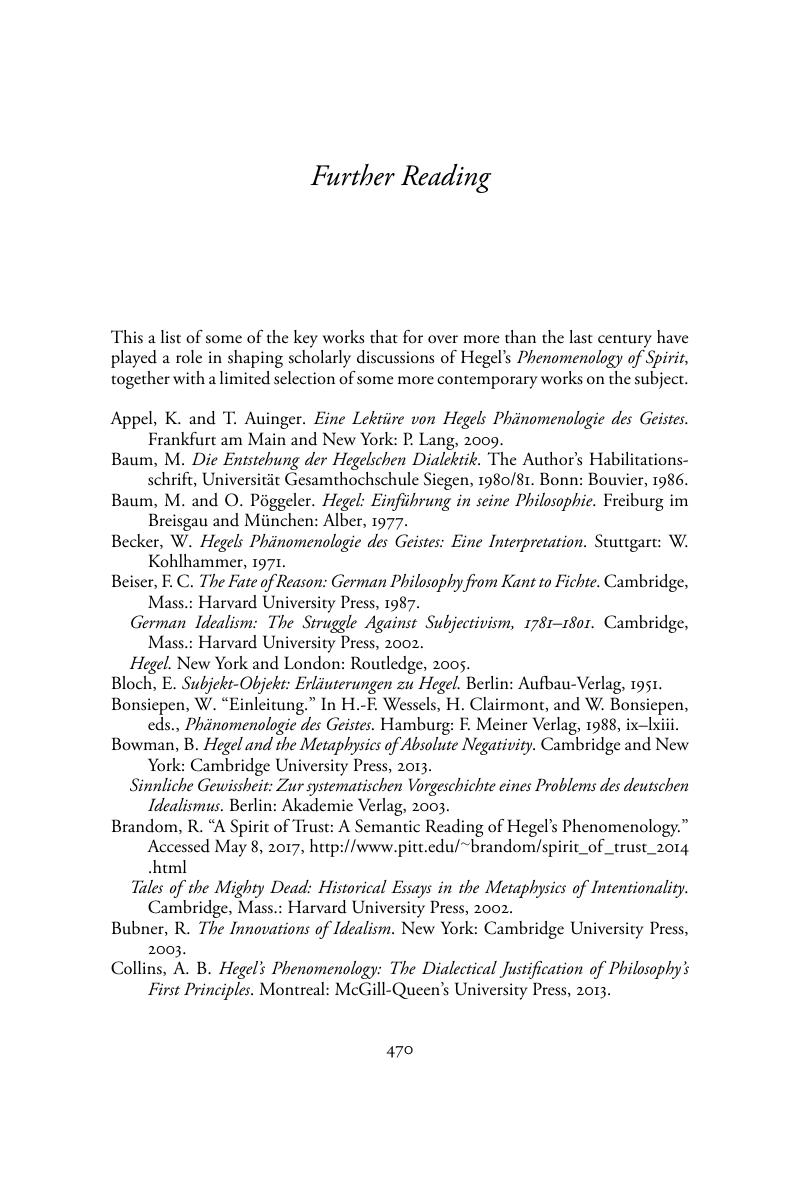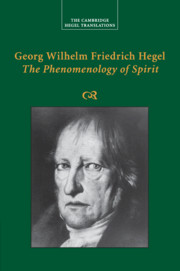Book contents
- Georg Wilhelm Friedrich Hegel
- Cambridge Hegel Translations
- Georg Wilhelm Friedrich Hegel
- Copyright page
- Dedication
- Contents
- Acknowledgments
- Introduction
- Translator's Note
- The Phenomenology of Spirit
- Preface
- Introduction
- A. Consciousness
- B. Self-Consciousness
- C. (AA) Reason
- (BB) Spirit
- (CC) Religion
- (DD) Absolute Knowing
- Appendix Hegel's Advertisement and Hegel's Note to Himself
- Further Reading
- Glossary of Translated Terms
- Index
- References
Further Reading
Published online by Cambridge University Press: 12 February 2018
- Georg Wilhelm Friedrich Hegel
- Cambridge Hegel Translations
- Georg Wilhelm Friedrich Hegel
- Copyright page
- Dedication
- Contents
- Acknowledgments
- Introduction
- Translator's Note
- The Phenomenology of Spirit
- Preface
- Introduction
- A. Consciousness
- B. Self-Consciousness
- C. (AA) Reason
- (BB) Spirit
- (CC) Religion
- (DD) Absolute Knowing
- Appendix Hegel's Advertisement and Hegel's Note to Himself
- Further Reading
- Glossary of Translated Terms
- Index
- References
Summary

- Type
- Chapter
- Information
- Georg Wilhelm Friedrich Hegel: The Phenomenology of Spirit , pp. 470 - 474Publisher: Cambridge University PressPrint publication year: 2018
References
Further Reading
This a list of some of the key works that for over more than the last century have played a role in shaping scholarly discussions of Hegel's Phenomenology of Spirit, together with a limited selection of some more contemporary works on the subject.

